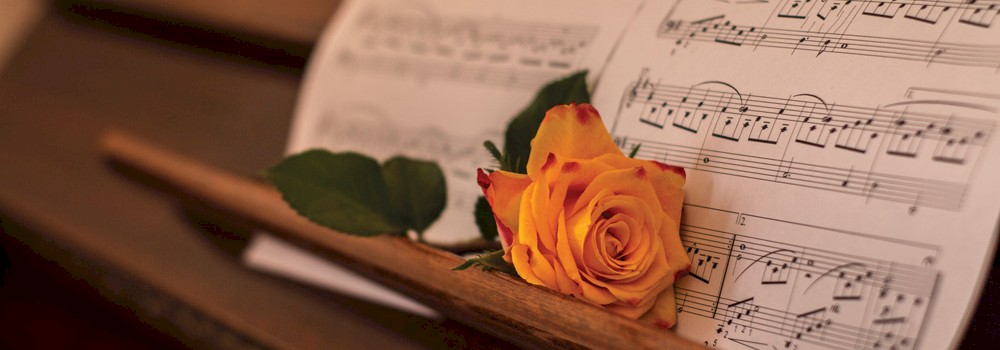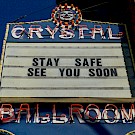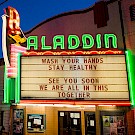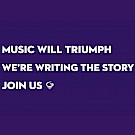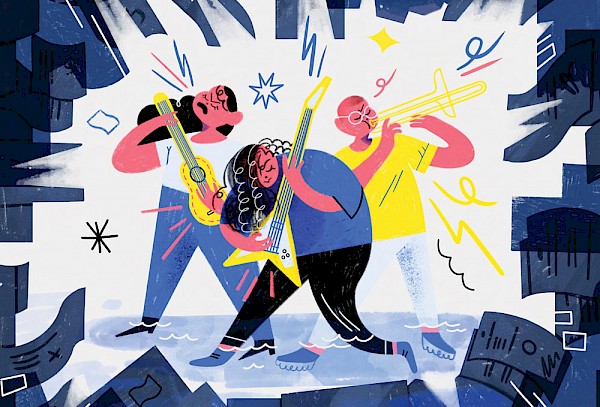 Our music community seeks to build bridges, not boundaries: Illustration by Maria RodriguezOver and over again on the pages of this magazine, we tell the stories of musicians who have realized their best self through music. For some it serves as therapy. Others are driven by a sense of purpose. And for others still, it’s simply pure, unadulterated passion.
Our music community seeks to build bridges, not boundaries: Illustration by Maria RodriguezOver and over again on the pages of this magazine, we tell the stories of musicians who have realized their best self through music. For some it serves as therapy. Others are driven by a sense of purpose. And for others still, it’s simply pure, unadulterated passion.
Music is capable of inspiring and bridging divides; it is infinitely more impactful than the words on this page.
But the words on this page are how we help those artists tell their own stories. And we’re sad to say, the plight of the modern musician neatly aligns with that of the independent journalist. The people who make this magazine sing are very part-time freelancers, most of whom hold other jobs in more lucrative industries. While those professional affairs may provide their livelihoods, they don’t always check all the boxes. So many of our writers and photographers cannot help but shine a light on those they truly connect with.
Our present-day gig economy has been both a blessing and a curse for creators—whether of song or story. But we do it because we believe in the power of the work we do. We do it because we hope it reaches even just one person and impacts their life, evolves their way of thinking, puts a smile on their face and a skip in their step, or just makes them feel like they are not alone in this world—whether suffering through things inside their own head or facing suppression from external factors outside of their control.
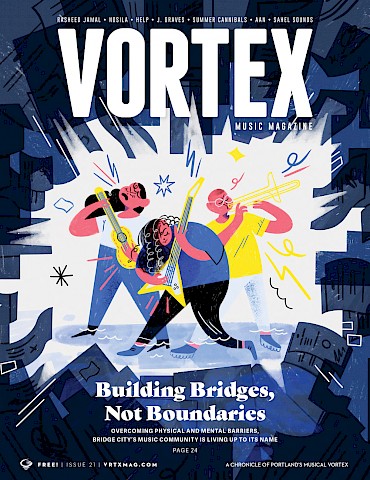 CLICK HERE to join the Vortex Access Party—you'll get a copy of the mag delivered to your door each quarter! Cover illustration by Maria RodriguezWhile music continues to be an ever-present force for good in all of our lives, it is increasingly more accessible and commoditized in today’s society—not always to the benefit of the creator. The independent journalist struggling in our inconsistent gig economy feels a similar strain as less brain power goes toward quality thought and analysis and more effort is placed on incessant content creation, promotion and analytics.
CLICK HERE to join the Vortex Access Party—you'll get a copy of the mag delivered to your door each quarter! Cover illustration by Maria RodriguezWhile music continues to be an ever-present force for good in all of our lives, it is increasingly more accessible and commoditized in today’s society—not always to the benefit of the creator. The independent journalist struggling in our inconsistent gig economy feels a similar strain as less brain power goes toward quality thought and analysis and more effort is placed on incessant content creation, promotion and analytics.
The truth is, we need these diverse, community-minded voices now more than ever. We need them standing up for what they believe in and amplifying others.
These impactful songs, and the stories behind them, instill change. It’s significant because a melody can literally plant itself in your brain and have you unconsciously singing along while also carrying a message of unity, activism or education. It can get us thinking about immigration reform, our checkered history as a nation, healthcare as a human right, or how to create livable, equitable cities for artists, addicts and the affluent. And it can start a dialogue while also being instantly relatable to individuals of very different backgrounds. Music can connect us, make us feel good and empower change.
That is exactly what our local music community does with gusto every single day. And that is absolutely what we seek to document on these pages.
Chris Young Editor-In-Chief

